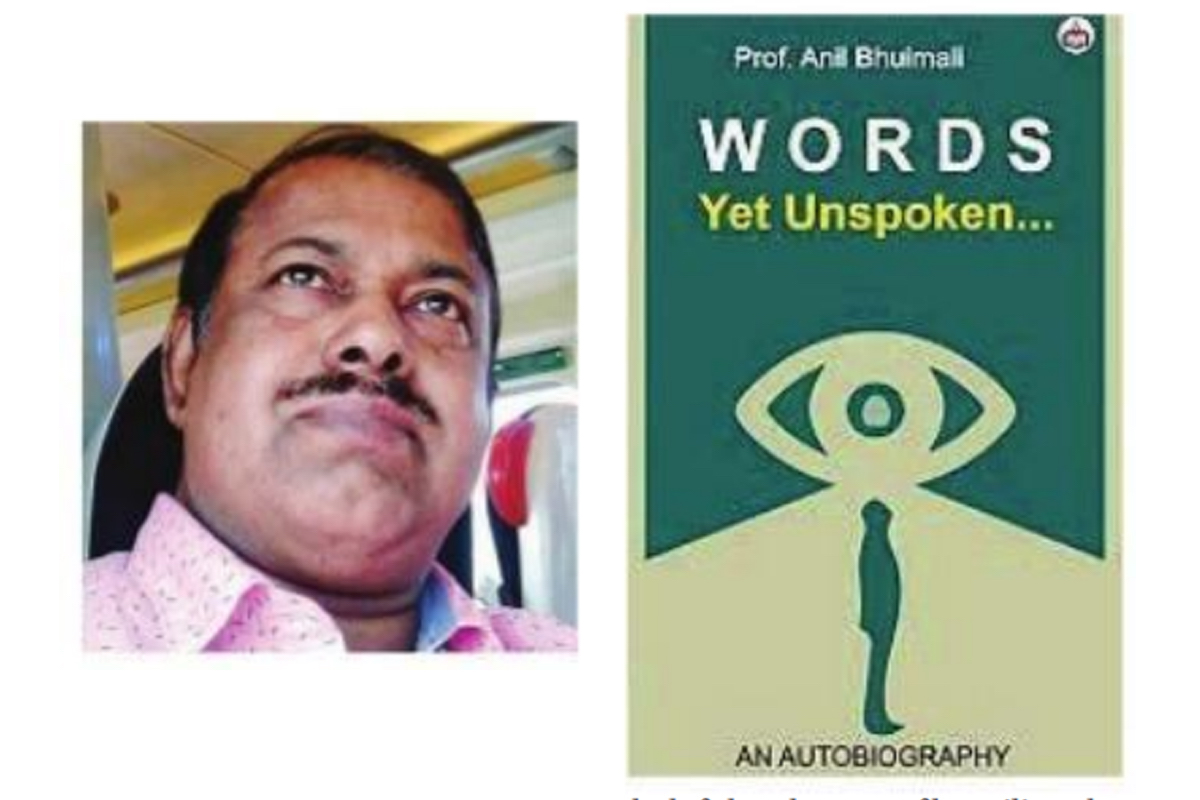The 130 pages of ‘WORDS: Yet Unspoken’ are actually born of emotions recollected in tranquility-a spontaneous overflow of powerful feelings long suppressed but now ‘spoken’ out, says the Registrar of the University of North Bengal in Siliguri, Dr Dilip Kumar Sarkar.
He was referring to an autobiography penned by Professor Anil Bhuimali, the Vice-Chancellor of Raiganj University, who, according to Dr Sarkar, has looked far down memory lane and offered an interesting trajectory of his life spanning from infancy to his top-notch position in academia.
Advertisement
“The metamorphosis of a man from a village pauper to a university professor should attract both who are engaged in the combat of life’s miseries and the wishy-washy lovers of the word ‘struggle’ (‘lutte’) alike. ‘WORDS’ is indeed a good read because the words therein are well-spoken,” Dr Sarkar says.
“Much of the book is a tale of sufferings. The sufferings of the Bhuimalis were endless because they were, as the author recollects, ‘economically underprivileged at any given time’. Now, long-term sufferings can breed latent misanthropy; or else they can sublimate the sufferers onto a feeling of oneness with the suffering humanity. The overwhelming woes of Prof Bhuimali’s early life did impact him positively, making him always amicable, genuinely helpful and a man of humility who defeated humiliations altogether,” the Registrar adds.
According to him, one who wants to defeat distress has to dream, and that APJ Abdul Kalam could fly on the wings of fire because he was a dreamer. “But dreams become ineffectual unless they are attended by a sense of responsibility. Professor Bhuimali has always been a responsible person. His decision to bring his impoverished family members from his native village over to Cooch Behar, his then place of work, was the outcome of a deep sense of bond and belonging. He had to trod the serpentine routes, but he never forgot his roots,” he says.
According to him, Professor Bhuimali was not born great; nor did he have greatness thrust upon him, but he simply achieved ‘greatness.’ “Perseverance and a built-in integrity of character paved his ways to where he is now. Just think of how adamantly he refused to give an indirect bribe for a school job which was really a crying need for him just after he graduated. Similarly, he was steadfast as a PG student; he would not miss a single class!” Dr Sarkar says.
“‘WORDS’ gives us many stories-within-the story, as autobiographies should. Professor Bhuimali has the candour to admit that he was fortunate in having generous souls around him. His university tuition fees would be defrayed by a professor and the then Registrar; he would enjoy some out of the way support from his research supervisor; and he was cocooned in a circle of sympathetic people in and around the campus. But the anecdotes reveal that he never misused friendship,” he adds.
He goes on to add that readers may stumble upon two pieces of quirkiness–one at the very outset, and the other at the very end. “The Franco-German alliance, so to say, in the ‘Contents’ (the use of French and German words therein) is rather loud! Equally unexpected in the wee space given to the recollection of his university service and beyond, all condensed into the last paragraph of the book.”
He says that the book is a kind of purgation, and conveys Professor Bhuimali’s word of thanks to life itself, which was once so cruel to him only to be very kind ultimately.











